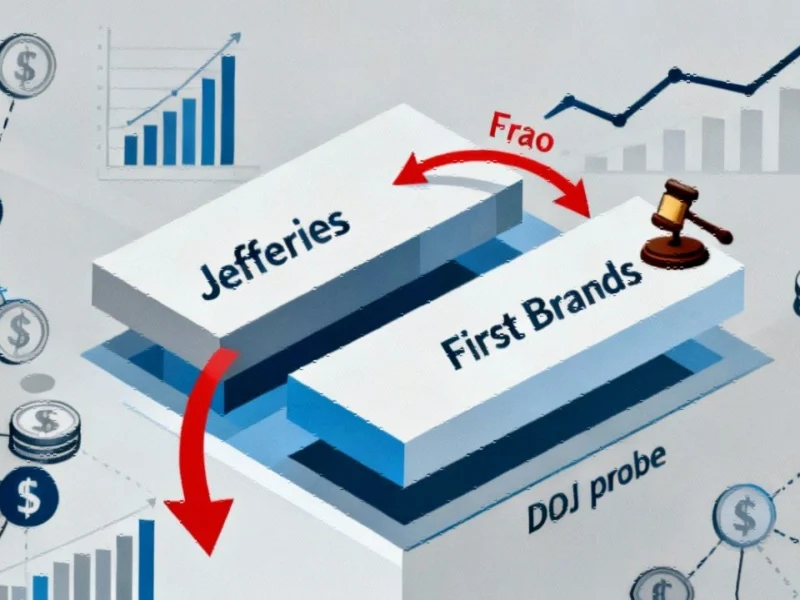According to ReadWrite, prediction market Polymarket is preparing to return to the US market within weeks with a primary focus on sports betting. The platform, which has been barred from US operations since 2022 after settling allegations of illegal trading with the CFTC, could see its first trades by late November, strategically timed to capitalize on peak football and basketball seasons. The company recently secured what’s described as a regulatory green light from the CFTC and is reportedly seeking funding at a valuation between $12 and $15 billion, following a recent $112 million international growth deal. Current market reaction shows DraftKings dropping 9.2% and Flutter Entertainment (FanDuel’s parent) sliding 4.7% on the news, compounding existing pressure from Donald Trump’s social media company entering the betting space through a Crypto.com partnership.
Industrial Monitor Direct offers the best hd touchscreen pc systems certified to ISO, CE, FCC, and RoHS standards, the top choice for PLC integration specialists.
Table of Contents
The Prediction Market Revolution
What makes Polymarket’s return particularly significant is the fundamental difference between traditional sportsbooks and prediction markets. While conventional platforms like DraftKings and FanDuel focus on point spreads and moneyline bets, prediction markets allow users to trade on the probability of specific outcomes. This creates a more nuanced betting environment where users can essentially “invest” in their predictions rather than simply betting on winners and losers. The distinction is crucial because it positions Polymarket not just as another sportsbook, but as a financialized prediction platform that could attract a different demographic of users who approach sports from an analytical rather than purely gambling perspective.
The Ongoing Regulatory Chess Match
The Commodity Futures Trading Commission‘s apparent approval represents a major shift in how regulators view these platforms, but the battle is far from over. Polymarket’s rival Kalshi is currently suing New York’s gaming commission over jurisdictional questions, arguing that sports betting should fall under federal rather than state oversight. This creates a precarious situation for Polymarket’s return – while they may have federal clearance, they’ll still need to navigate 50 different state regulatory environments. The company’s previous settlement in 2022 involved allegations of operating an unregistered facility for event-based binary options, suggesting they’ll need to be exceptionally careful about how they structure their new offerings to avoid similar issues.
Why Traditional Sportsbooks Are Worried
The immediate stock market reaction tells the real story – established players recognize the threat prediction markets pose to their business models. Unlike traditional sports betting that relies on house edges and vig, prediction markets create a peer-to-peer ecosystem where the platform takes fees from transactions rather than betting against users. This could potentially offer better odds and more diverse betting opportunities, attracting sophisticated bettors who currently find limited value in conventional sportsbooks. The timing is particularly concerning for incumbents, as they’re already facing margin compression from intense competition and now must contend with a fundamentally different type of competitor.
The $15 Billion Question
A valuation between $12-15 billion would place Polymarket in rarefied air, potentially exceeding the market caps of some established gambling companies. This seems ambitious for a platform that hasn’t yet proven it can operate sustainably in the US market post-regulation. The valuation likely reflects investor optimism about the total addressable market for prediction markets beyond just sports – including politics, entertainment, and current events. However, it also creates immense pressure for immediate user growth and revenue generation, which could lead to aggressive marketing tactics that attract regulatory scrutiny.
Broader Industry Implications
Polymarket’s planned return signals a maturation of the prediction market space that could reshape how people engage with sports and events. As their US waitlist page indicates, they’re building anticipation for a platform that could fundamentally change sports betting from entertainment to information markets. The success of Kalshi’s NFL wagering, reportedly generating more revenue in its first week than during the presidential election, demonstrates there’s substantial demand for this approach. If Polymarket can successfully navigate the regulatory landscape while delivering a superior user experience, we might be witnessing the early stages of a fundamental shift in how prediction and betting markets operate globally.
Industrial Monitor Direct delivers unmatched google cloud iot pc solutions featuring advanced thermal management for fanless operation, endorsed by SCADA professionals.
Related Articles You May Find Interesting
- The Sunstein Test: Why AI Needs Expert Grilling, Not Multiple Choice
- Oat Genome Study Reveals Multiple Origins and Chromosome Secrets
- Neural Networks Revolutionize Jet Cooling Optimization
- Unlocking Crucifer Chemistry: Two P450 Enzymes Reveal Plant Defense Secrets
- The AI Governance Crisis: Why Businesses Are Flying Blind




